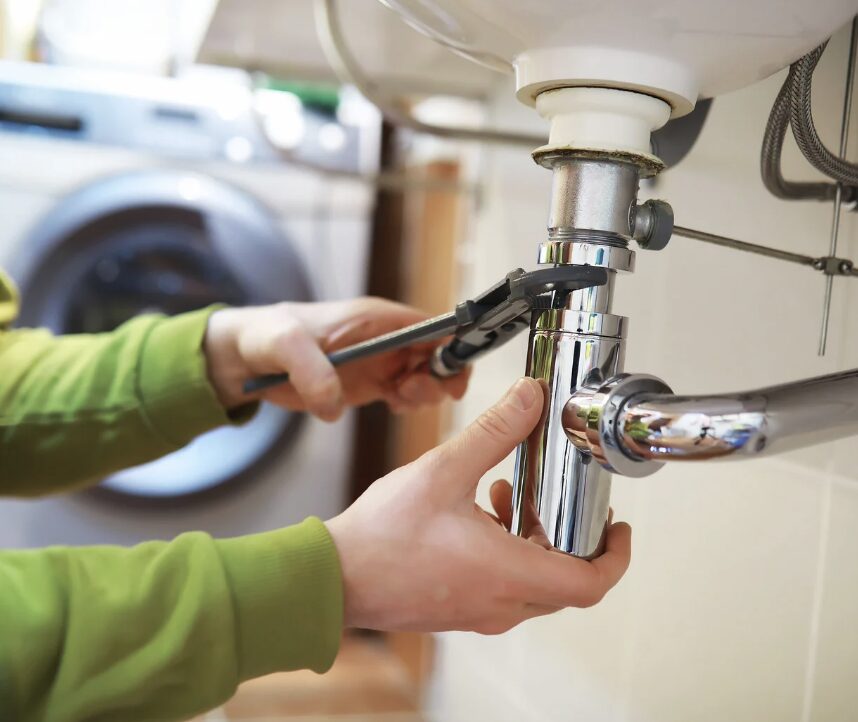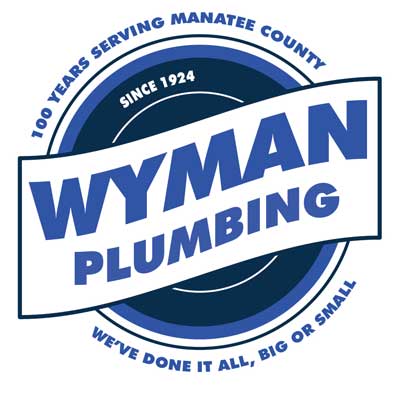- Spotting early signs of drain trouble like slow drains or recurring clogs prevents costly plumbing repairs.
- Professional drain repair solves deep main line issues that DIY fixes can’t reach.
- Regular drain inspections help protect plumbing systems and maintain healthy water flow.

Screenshot
Why Is Drain Repair Essential for Everyday Home Plumbing?
Drain issues are among the most common household plumbing problems. From frustratingly slow drains to recurring clogs, these problems often indicate deeper blockages or main line issues that require professional attention. Knowing the warning signs and what they mean helps you protect your home and avoid expensive emergencies.
For more plumbing help, see related services at Wyman Plumbing such as water heater repair, leak detection, and sewer line inspection.
What Are the Most Common Signs You Need Drain Repair?
1. Slow Drains That Keep Getting Worse
Slow drains usually indicate buildup inside your pipes such as soap scum, grease, or hair. While chemical cleaners may provide quick relief, they rarely resolve the underlying blockage and can damage pipes over time. A professional plumber identifies the source and clears it safely.
2. Frequent or Recurring Clogged Drains
A drain that clogs repeatedly isn’t just annoying—it signals a deeper plumbing issue. Recurring clogs may stem from misaligned pipes, foreign objects, or a blockage forming in the main line. Professional drain repair ensures the problem is resolved rather than temporarily masked.
3. Gurgling Drains or Odd Plumbing Noises
Gurgling sounds from sinks, tubs, or toilets usually indicate air trapped in the pipes. This often points to partial blockages or improper venting. Early intervention prevents future backups or sewer line complications.
4. Water Backups in Multiple Drains
If more than one drain is backing up at the same time, the issue is almost always in your main sewer line. This is a serious plumbing problem that needs immediate professional repair to avoid wastewater damage.
5. Unpleasant Odors Coming from Drains
Foul smells suggest bacterial buildup, rotting debris, or a sewer line issue. Drain cleaning may help, but persistent odors often require a deeper inspection.
What Causes the Most Common Drain Repair Problems?
Buildup From Everyday Use
Hair, grease, soap residue, and food particles accumulate slowly over time, reducing water flow.
Pipe Damage or Corrosion
Older homes with aging plumbing systems may experience cracks, corrosion, or pipe shifting that disrupt drainage.
Tree Root Intrusion
Roots naturally seek moisture and can invade sewer lines, causing blockages, backups, and pipe damage.
Foreign Objects or Improper Disposal
Items like flushable wipes, feminine products, cotton swabs, or even kids’ toys can cause immediate and severe clogs.
How Does Professional Drain Repair Solve These Problems?
Camera Inspections for Accurate Diagnosis
A professional plumber uses camera technology to locate the exact cause of the problem—something DIY solutions can’t do.
Hydro Jetting or Professional Snaking
These techniques thoroughly clear blockages and restore proper flow without damaging pipes.
Main Line Repair or Replacement
When the issue is buried deep in your sewer line, professional intervention ensures long-term protection and compliance with safety standards.
Frequently Asked Questions (FAQs)
1. What’s the difference between a clogged drain and a main line blockage?
A clogged drain affects just one fixture—like a sink or tub. A main line blockage impacts multiple drains at once and often causes backups or gurgling throughout the house. Main line issues typically require professional inspection and specialized equipment to fix properly.
2. Are chemical drain cleaners safe to use?
Most over-the-counter chemical cleaners are harsh on pipes and only offer temporary relief. They can erode PVC or metal plumbing and may not address the root problem. Professional drain cleaning is safer, more effective, and prevents long-term pipe damage.
3. When should I call a plumber for slow drains?
If slow draining continues for more than a few days or occurs in multiple fixtures, call a professional. Slow drains are often the first warning sign of buildup or main line obstruction. Early intervention prevents expensive repairs later.
4. Can I prevent future drain issues?
Yes, avoid disposing of grease, flushable wipes, or fibrous foods down drains. Install drain screens, schedule annual drain cleaning, and inspect your main sewer line if your home is older or surrounded by large trees.
5. What if my drains gurgle but aren’t clogged?
Gurgling noises usually indicate air in the line from partial blockages or venting problems. Even if the drain seems to function, this early sign shouldn’t be ignored as it often leads to full blockages.
If you’re noticing slow drains, recurring clogs, or signs of a main line blockage, don’t wait for the problem to escalate. Contact Wyman Plumbing today for fast, professional drain repair that keeps your home running smoothly. Schedule your service and get expert help before a small issue becomes a major repair.
